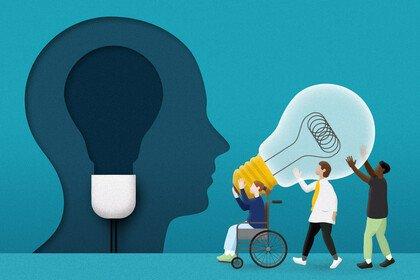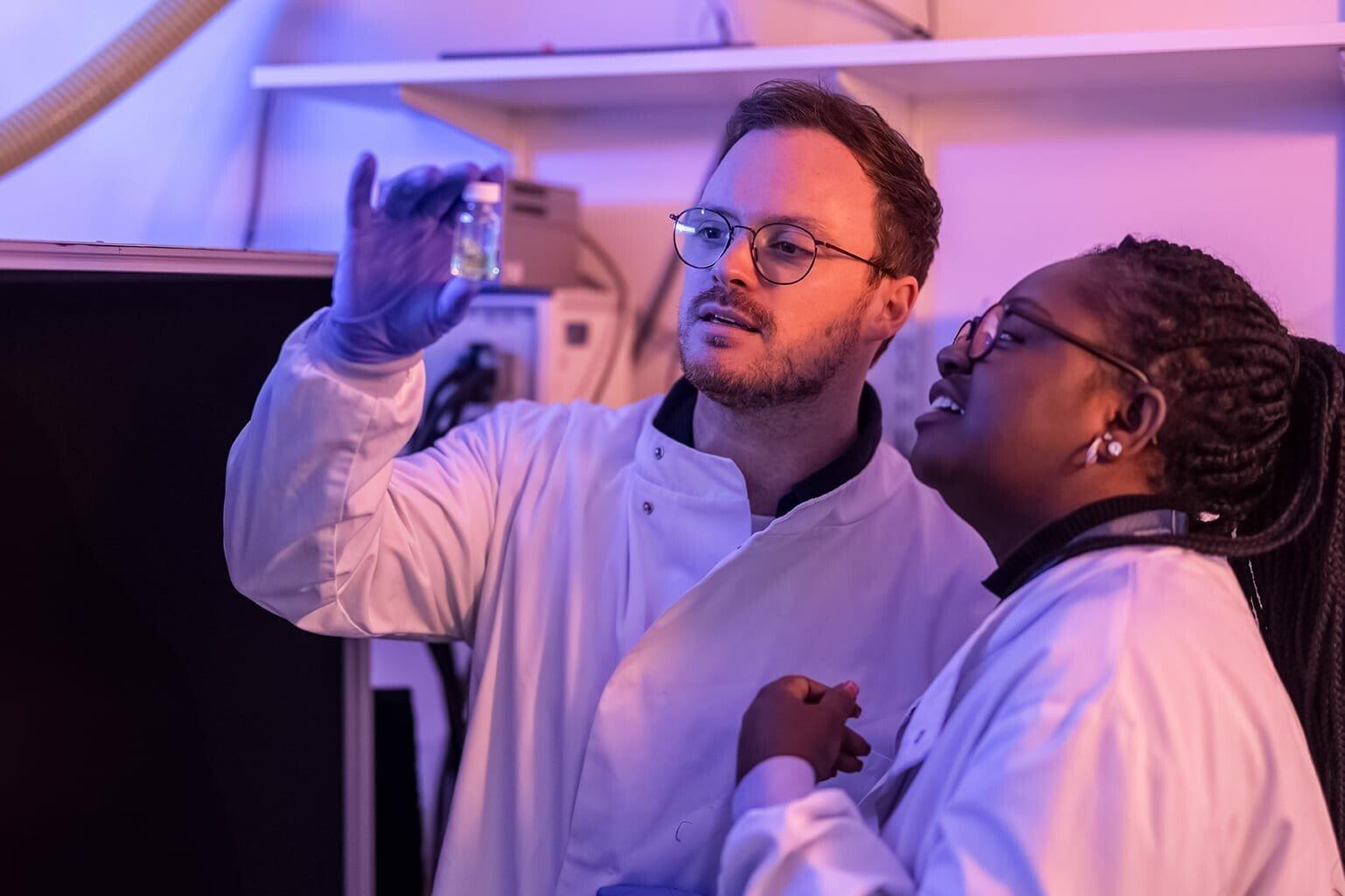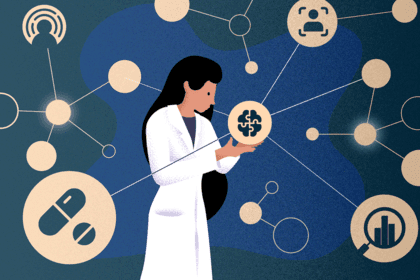
Experts must work together to power mental health science
From neuroscience and psychiatry to history, economics and lived experience – innovation in mental health science is driven by researchers working together.
The full promise of neuroscience for mental health clinical practice has not been realised yet. Cat Sebastian and Camilla Iannone explain how we’re trying to bring together neuroscientists and clinical experts for our funding call and partnership with Neuromatch.

Jason Alden / Wellcome
Two scientists at work at the Sainsbury Wellcome Centre in London.

Head of Evidence, Wellcome

Research Lead, Wellcome

Head of Evidence, Wellcome

Research Lead, Wellcome
Depression, anxiety and psychosis affect millions of people worldwide, but we still lack knowledge about how these conditions develop and resolve. Improving understanding and treatment requires researchers to work together across different fields.
Our Mental Health Award will drive progress in mental health by funding projects that involve collaborations between neuroscientists, professionals working clinically in mental health and people with lived experience.
We know that finding collaborators can be a challenge. That’s why we’re working with the online networking platform Neuromatch to provide a new way for researchers from different specialisms to find each other.
At Wellcome, we want to drive a transformative change in our ability to intervene as early as possible in the course of anxiety, depression and psychosis. However, work is needed to better understand mental health problems in ways that will ultimately benefit people living with mental health problems.
Last year, we commissioned a report to explore how cellular, animal and computational neuroscience could best rise to address this challenge. Two key points emerged: the potential in combining different methodological approaches and the need for more collaboration between neuroscientists and clinical researchers.
Mental health research benefits from combining different methodologies so that problems can be explored from different angles, providing insights into how the brain, body and environment interact.
Models – cellular, animal or computational – are a simplified representation of the complexity of mental health conditions. They are designed to isolate key features and uncover new insights about conditions and their symptoms, and each modelling approach makes a distinct contribution.
The report concluded that combining computational and experimental models in mental health research is a powerful approach that harnesses the advantages of each.
With the term ‘computational’ we include both theory-driven ‘top-down’ approaches and data-driven ‘bottom-up’ approaches.
To unlock the full potential of neuroscience in mental health, more collaboration is needed among neuroscientists, clinical researchers and people with lived experience.
This is crucial to translate research theory into clinical practice and ensure any interventions that are developed work for the people they are intended for.
Collaboration is also a major driver of innovation in mental health science. By working together and bringing diverse perspectives to the table, research may be more likely to progress in novel and fruitful directions.

From neuroscience and psychiatry to history, economics and lived experience – innovation in mental health science is driven by researchers working together.
That’s where our funding call comes in.
With this Mental Health Award, Wellcome will fund projects that focus on understanding symptoms associated with anxiety, depression and/or psychosis.
Our Mental Health Award invites researchers to be especially collaborative.
We recognise that finding suitable collaborators to meet a funding deadline can be a challenge. That’s why we have decided to partner with Neuromatch for this call.
Neuromatch specialises in connecting researchers through networking and matchmaking activities. Using artificial intelligence and a bespoke algorithm, it ‘matches’ researchers around the world who are working on the same problems and helps them work together.
The use of Neuromatch is not mandatory for applicants but provides another route to identifying novel collaboration opportunities. To find out more, visit the Neuromatch sign-up page.
Our goal is to help realise the full potential of neuroscience in mental health research. Our funding call and partnership with Neuromatch is an important step.
We hope that researchers use Neuromatch to explore new possibilities and connect with experts with similar priorities and interests.
Our latest Mental Health Award is open to applications until 23 July 2024.
We’re funding research to help create transformative change in early intervention for anxiety, depression and psychosis.
There are currently no open funding opportunities for Mental Health. Learn more about the funding we provide.
Tags


